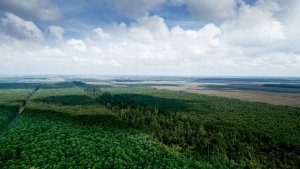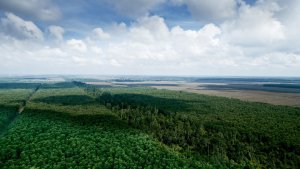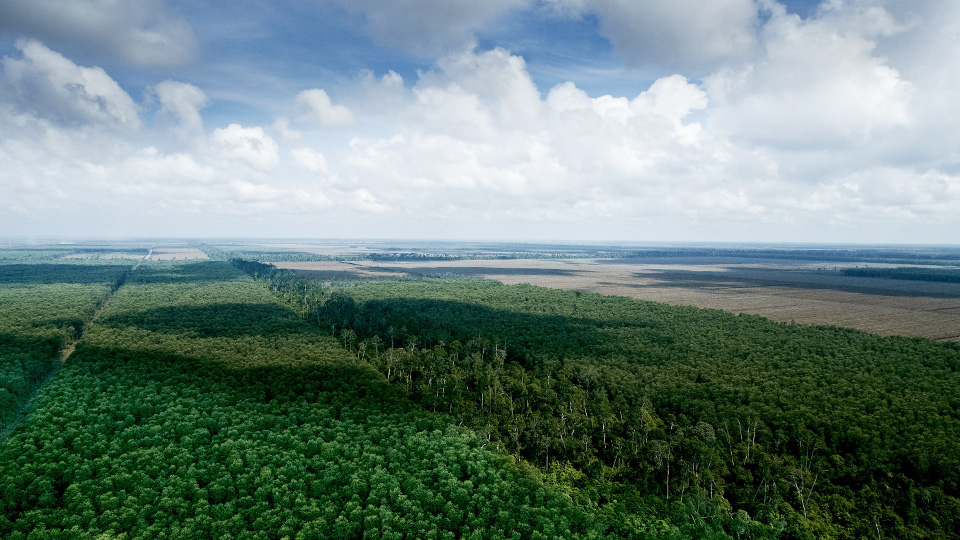Meet the man protecting Sumatra’s wild elephants
- Details

Sarmin’s family is larger than most. Not only does he have nine children, but some of them weigh over four tons each.
Sarmin works as a mahout in APRIL’s Elephant Flying Squad, taking care of the elephants he considers to be a part of his family. For more than a decade Sarmin, his wife and three children have called Ukui Estate in Sumatra’s Riau province home, and the six elephants part of their extended family.

"Basically the elephant has feelings, just like humans,” he explains. “So I have to treat her like I treat my children. The elephant is sometimes very sensitive, so I have to make the elephant feel comfortable.”
For Sarmin, elephants are really funny animals, and are especially so when it comes to playing with them or bathing them.
“When I am on leave, I miss the elephants, and I have to ask the other mahouts about how the elephants are doing. That’s all it takes to make me feel better,” Sarmin says.
Sarmin began working with Sumatran Elephants in Way Kambas National Park, Lampung, where he started out as a feeder before training as a mahout. In 2006 he got the opportunity to join APRIL’s Elephant Flying Squad.
The Flying Squad is a team of trained elephants and nine handlers who patrol the forests to guide wild elephants away from inhabited areas, preventing conflict between human and animal.
It’s a program that was credited by WWF for helping reduce the number of wild elephant deaths in Sumatra from 10 in 2015 to four in 2016.
The Flying Squad began with Adei, a male, and three females, Ika, Meri and Mira. Meri gave birth to Carmen in 2006, and Mira had Raja Arman two years later, bringing the number of elephants to six.
Sarmin explains that it is not difficult to understand an elephant’s will, if he knows the personality of each individual elephant in The Flying Squad. He said that it is imperative to communicate with elephants as though he is speaking to humans.
“I always caress and stroke the elephant, so that they can better understand what I say.
“The elephant will listen to my instructions, and I usually reward them with brown sugar or extra nutritional supplements since they have done what I have asked,” he said.
Sarmin cares for Adei and Ika, feeding and bathing them, and also checks their nails, mouths and teeth for any problems. The team is supported by trained vets, should they be needed.
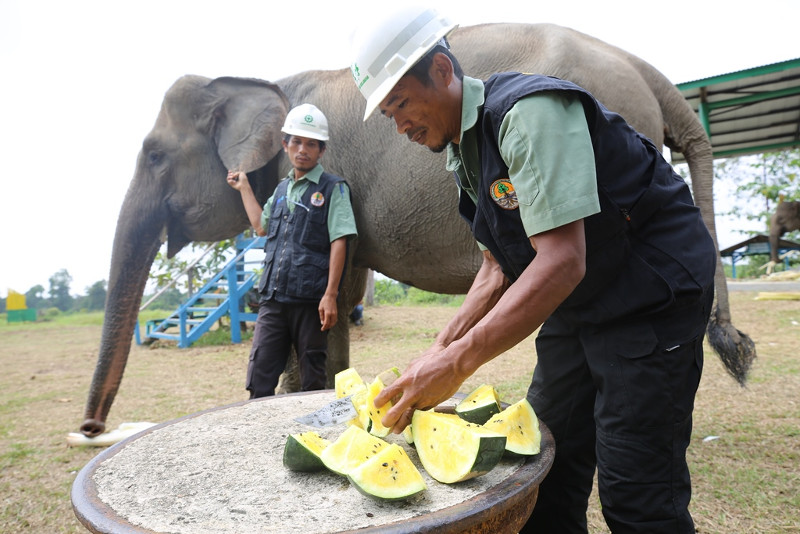
There are dwindling numbers of wild elephants in Sumatra – WWF believes it could be as low as 100. Their habitats are under threat due to illegal logging and encroachment, which brings them into contact with human settlements.
"The movement of wild elephants is usually seasonal,” says Sarmin. “In a year the elephants can enter residential areas as many as four times.”
The elephants can damage homes and crops, meeting with an angry and sometimes deadly response from villagers. Thanks in part to the Elephant Flying Squad, which also educates local communities on mitigating conflict, the number of deaths has been reduced. "When on patrol, we also involve the community. We give examples and instructions so that no wild elephants become victims," Sarmin said.
However, tragedy did strike in 2014. Sarmin recalls the time when WWF discovered the remains of a wild elephant that had been killed by humans in Baserah Estate, Riau.
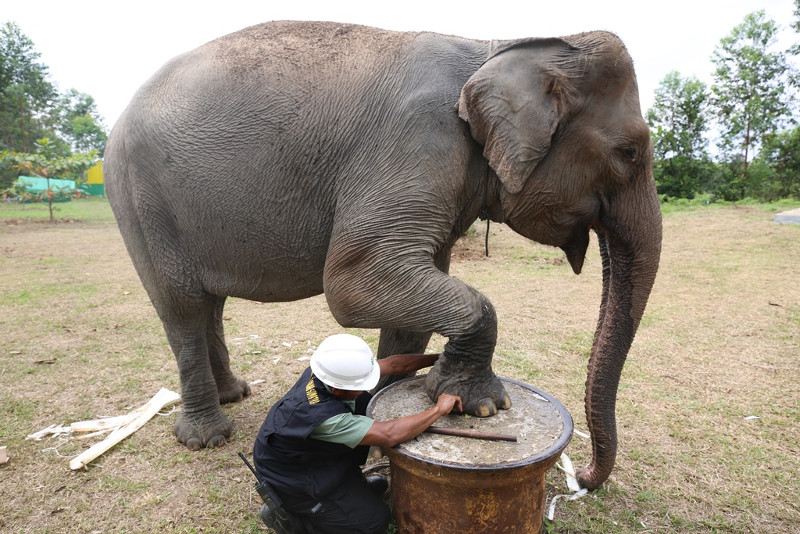
After reporting it to the authorities, a joint team comprising the Flying Squad, Riau Natural Resources Conservation Agency, Tesso Nilo National Park Authority and Riau Andalan Pulp and Paper (RAPP) vets immediately visited the site to collect information and conduct an autopsy to determine the cause of the elephant’s death.
Sarmin and the team did not find any signs of physical trauma or injury on the elephant’s body, and they therefore deduced that the elephant had died from poisoning by an irresponsible person.
The tragedy caused Sarmin to shed tears. “When I see a dead elephant, I am very sad and angry with the perpetrator who killed the elephant. I am always hoping that no one kills wild elephants, because their number is so low,” he said.
More Articles
